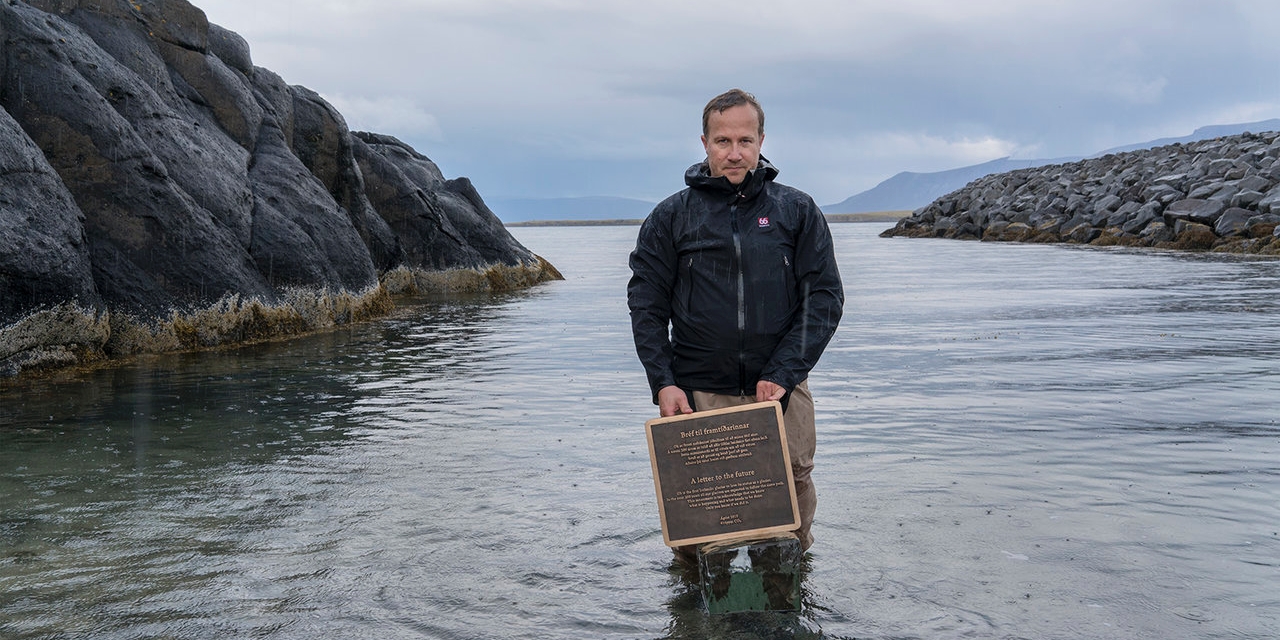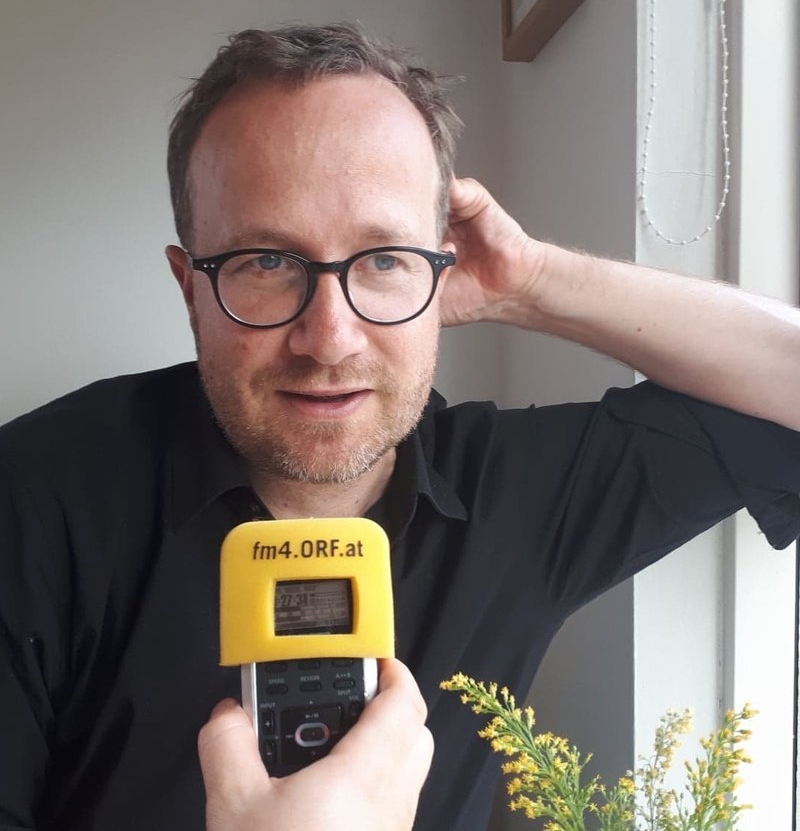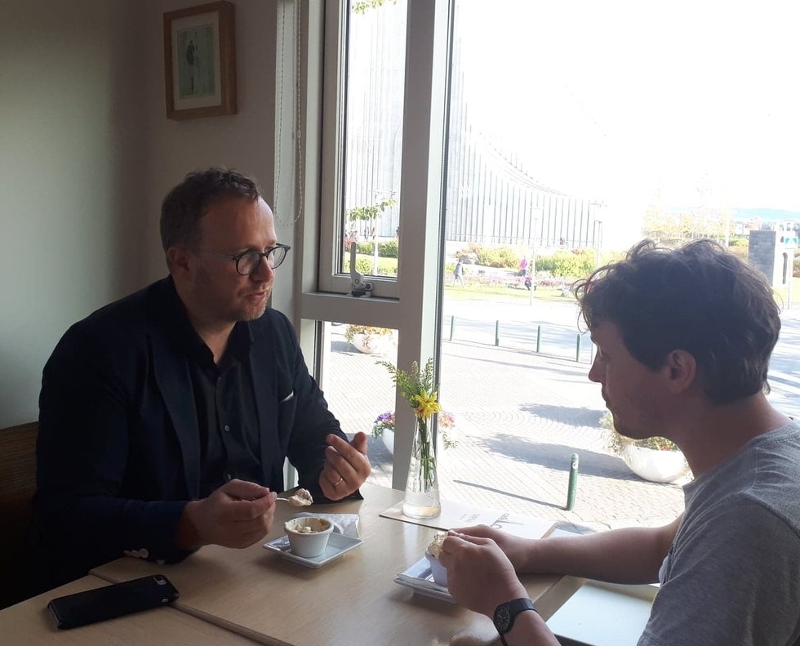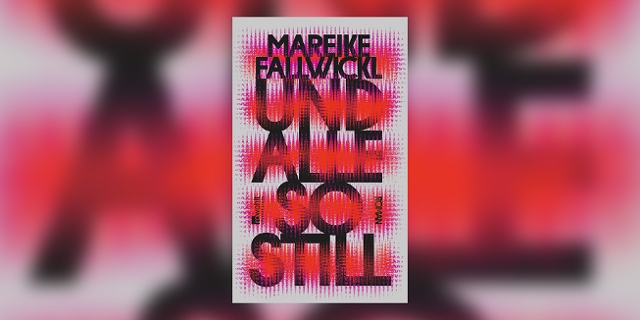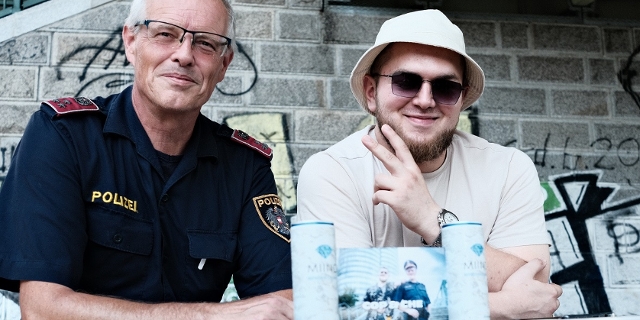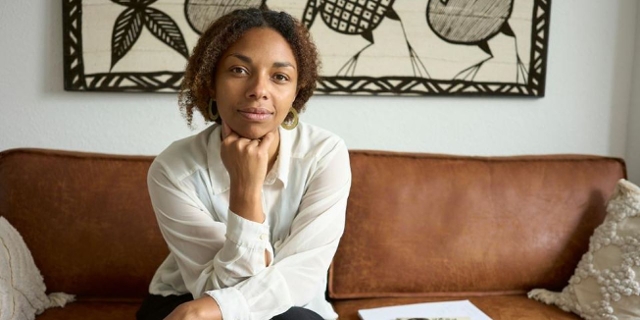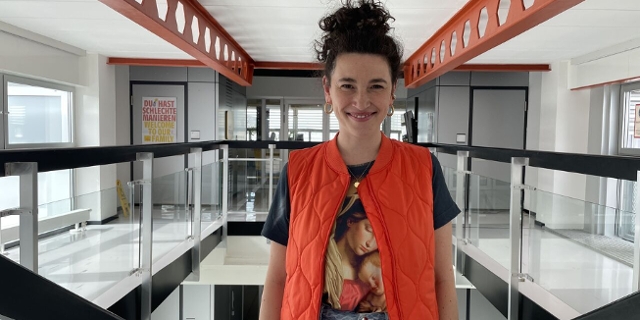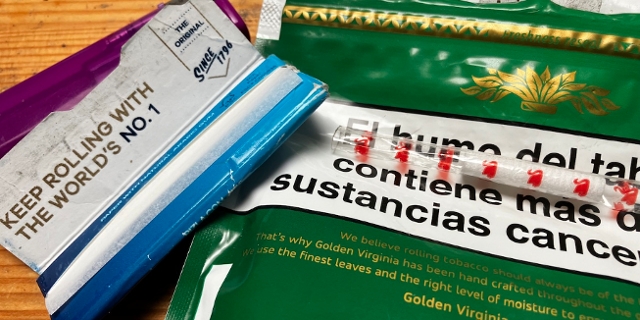‚On Time & Water‘ by Andri Snær Magnason sees climate change through the lens of mythology
By Johnny Bliss
Dieses Element ist nicht mehr verfügbar
Speaking of time… I realized recently that as far back as late 2017, Andri Magnason and I were already talking about this book. He told me then that he was „working on a book that is full of mythology. We’re living in a very special time when earth forces are not moving on geological speed, they’re moving on human speed. That is, the glaciers are melting before our eyes, while they should have been there just standing for thousands of years. So I’m using some mythology to understand that.“
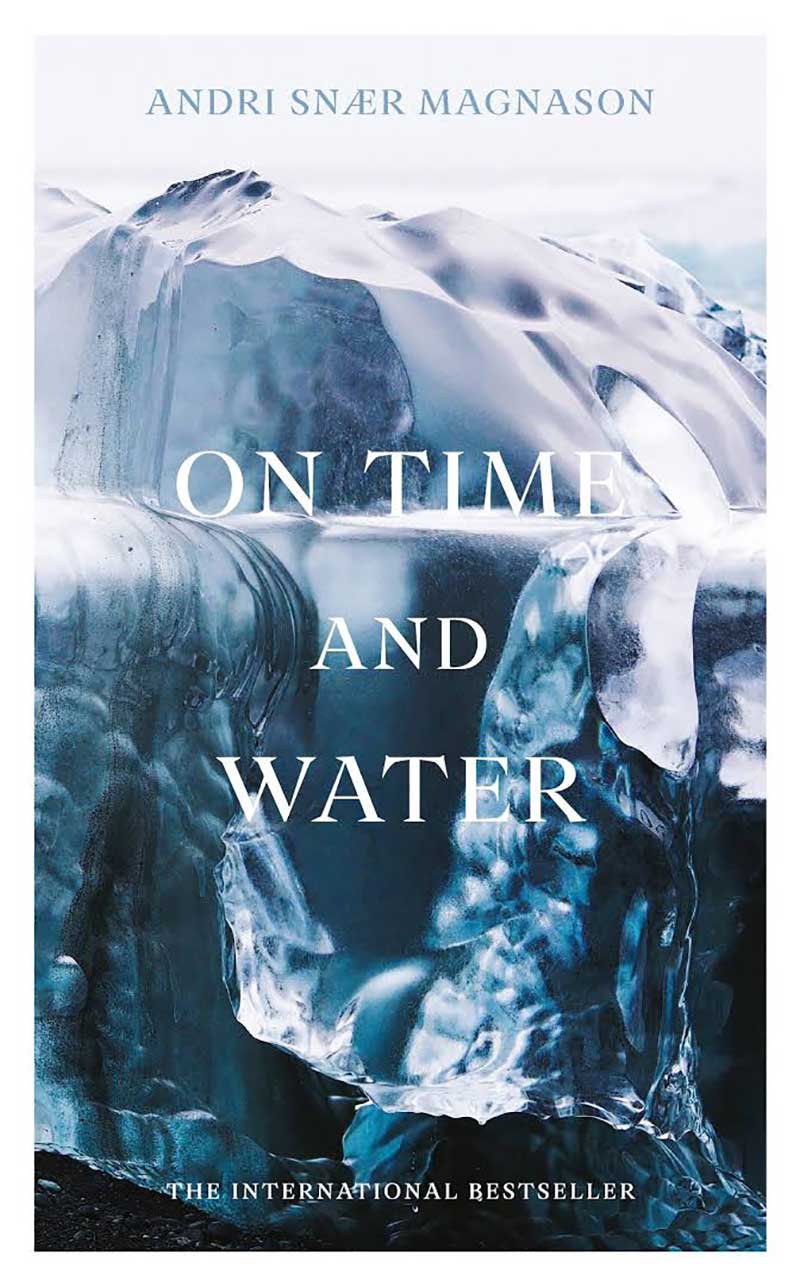
Serpent's Tail
On Time and Water (‚Zeit und Wasser‘) is out now in English, German, and numerous other languages. The English version came out by Serpents Tail and was translated by Lytton Smith.
Fast forward to 2020, and that book has just come out. (Mind you, three years isn’t a particularly long time for a book. With everything that’s involved in writing a book, from research and interviewing people, to writing the first manuscript, finding a publisher, applying the finishing touches, and then getting it published in thirty different languages, three years is actually rather fast, alike to an Icelandic glacier retreating approximately three metres in the same amount of time. Which many of them are actually doing. FYI.)
This being a review of a book, let’s begin with the conclusion:
‘On Time and Water’ is a very good book. Were I in any position to give away stars or, better yet, glacial rivers that sustain the lives of billions of people on earth, I would firmly give this one the five that it is due. In this book, Andri confronts one of the great challenges of the climate debacle: how merely to speak about the ‘biggest issue in the world’ effectively.
Over the phone, he tells me: “I didn’t understand 35 gigatons or 100 billions tons of oil or 400p.p.m. of CO2. When somebody said 2070, I felt that I was disconnected to that timeline. It just felt much easier to deal with local environmental problems like in the highlands, where I could see in a tangible way that a dam would be built and it would destroy this valley. I could easily grasp that, but I felt that this was so huge and abstract that I didn’t feel like I had authority to talk about it. And then I was thinking, ‚but, you know, it’s my planet, for God’s sake!‘ A big issue like this will never reach the public, if the public doesn’t understand it, or can’t relate to it.”
Full disclosure: As a person who likes to think he cares about this topic, I have personally started reading many books about climate change over the years. However, I can count the number of ones I’ve finished on the fingers of my forehead. Usually, it comes down to the same issues - I know that it’s important, and I know that what it means is terrifying. But missing a flight or a deadline or something feels so much scarier.
Telephone Andri: “I saw value in my role as a storyteller. Regular journalism takes you through very similar paths in the brain, the path that you use over your morning paper. But as humans, we are poetic, we are scientific, we are rational, irrational, we are mystic, we are so many things. I wanted to prove that the world was very connected and just make a writing experiment. Can I write a book that makes sense of everything, that connects glaciers and grandmothers and the Dalai Lama and crocodiles and the nuclear bomb?”
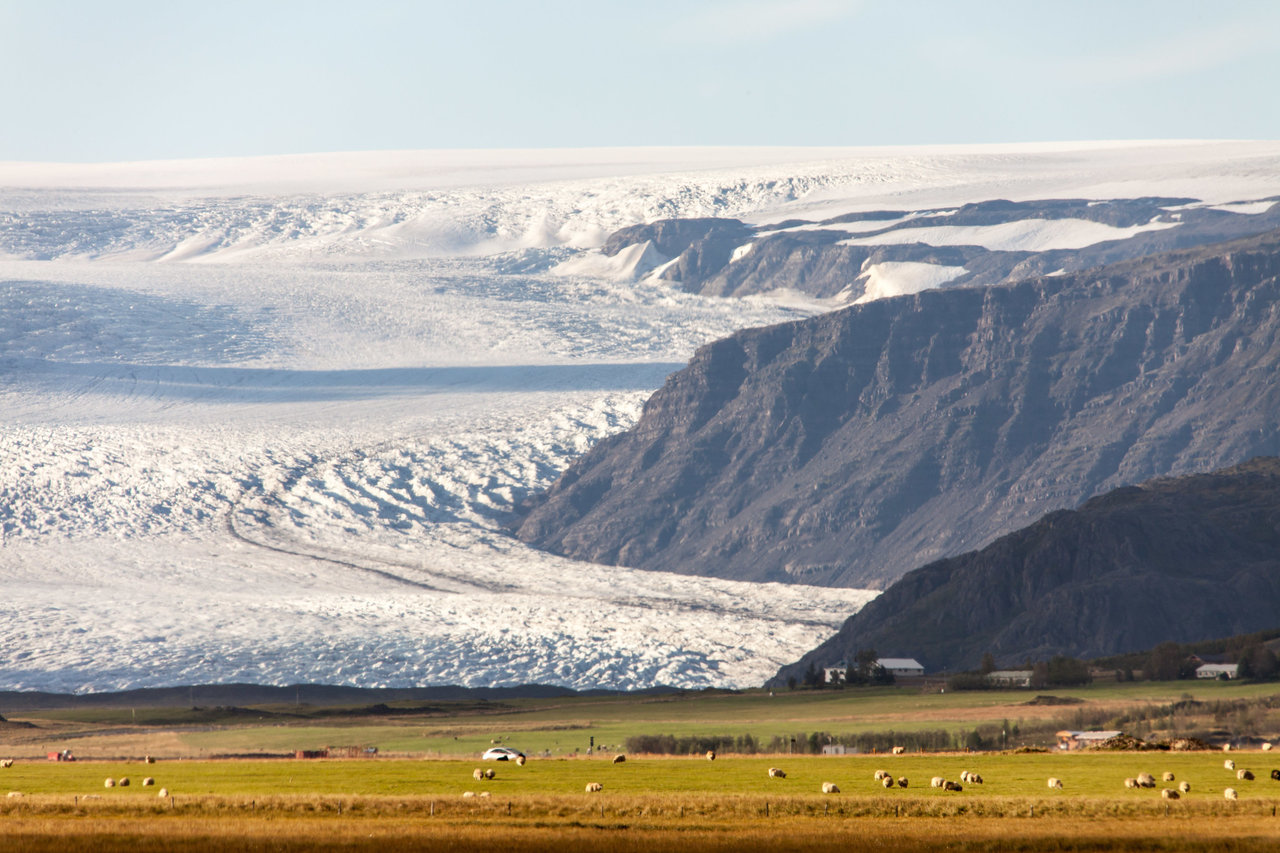
Chris Ballance @ Flickr
Glaciers & Grandmothers
One of the most compelling sections of the book relates to his grandparents’ honeymoon in 1956, which they chose to spend atop a huge Icelandic glacier (Vatnajökull), as part of a survey team with the Icelandic Glaciological Society. It’s an incredible story on its own merits, full of adventure and danger, but part of what makes it resonate is the plight of that very same glacier today.
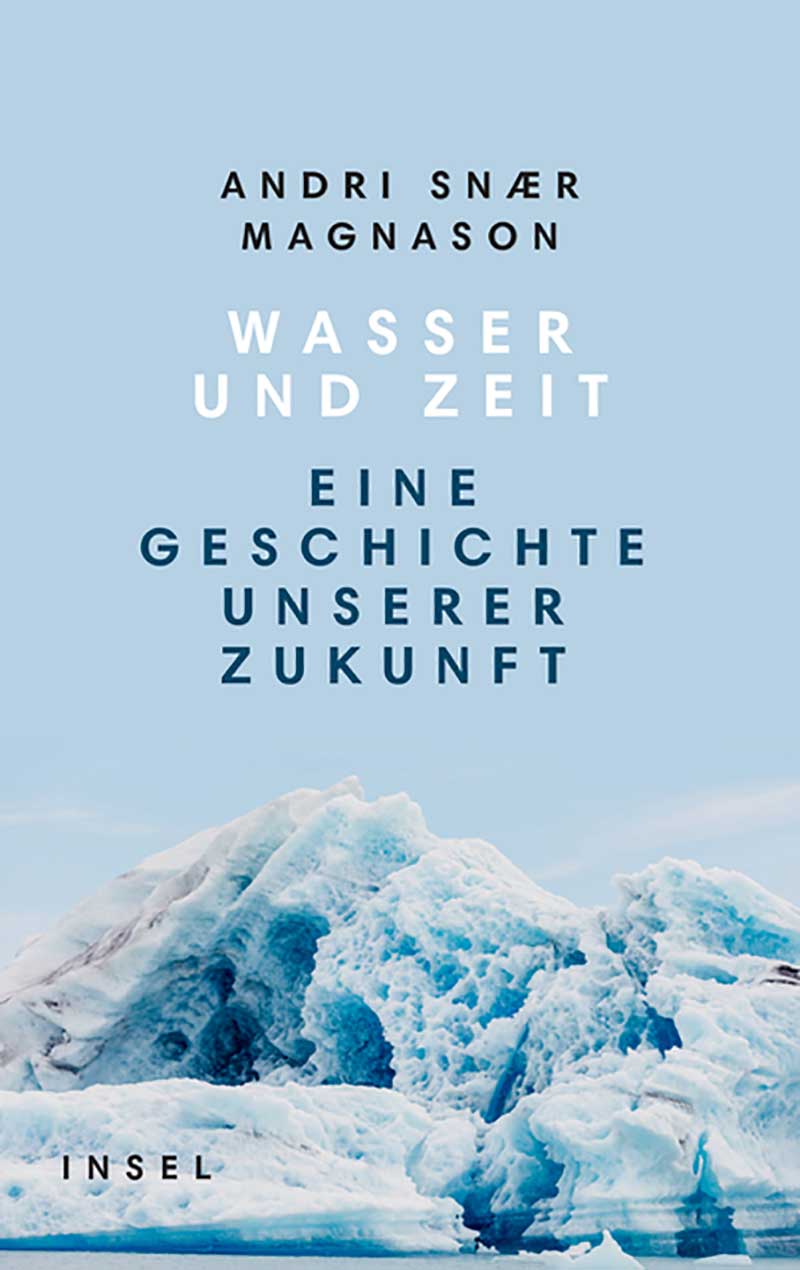
Insel Verlag
Selbst beim Cover ist die Übersetzung dem Original sehr nahe. „Wasser und Zeit“ wurde von Tina Flecken aus dem Isländischen übersetzt und ist im Insel Verlag erschienen.
Andri: “So where my grandparents were camping, somebody in 150 years will just have to point to the sky and say ‘that’s where they were camping, up there, under the clouds. That’s where they were being drawn by the snowmobile.’ Like, they were among the the first to discover these glaciers and I might have a grand-child that would be the last to research these glaciers. They’re vanishing on a greater speed than we’ve ever seen!
“Sometimes we don’t notice things until they start moving. In Slaughterhouse Five by Kurt Vonnegut, there’s this dialogue where somebody says, ‘I’m writing an anti-war book’, and the other person says cynically, ‘why don’t you write an anti-glacier book instead?’ Because there will always be glaciers, and there will always be wars. It’s just like a natural fact, right? But now, suddenly, there will not always be glaciers, not everywhere. Of course that can also make one hope that there will not always be wars!”
On a Mythological Timescale
The word “mythology” comes up a lot when you are talking with Andri. And he isn’t using the word frivolously. The times we live in, he says, are most easily comparable to the ones you find in creation myths.
Andri: “If you look at time, what are 100 years against 50 million years? If a single person can measure a greater change of the ocean in his or her own lifetime than in the previous 50 million years, how do you explain that? According to the Bible, the world was created in seven days. So if you look at 100 years against 50 million years, then that is a Biblical timescale, and referring to mythology actually makes total sense.”
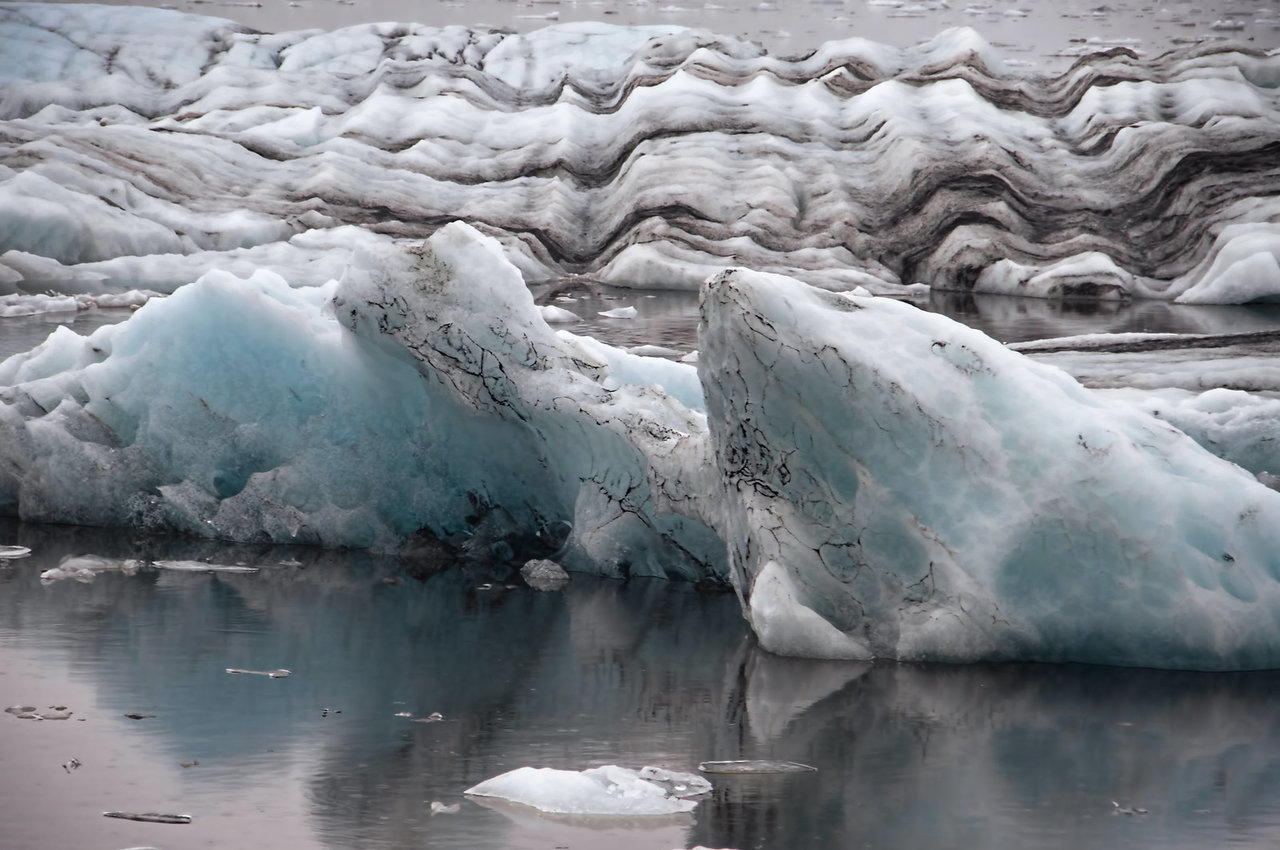
Travels with Kathleen @ Flickr
On Time and Fire
Core to what makes the book interesting is the accessibility of storytelling language versus the impenetrability of so many of the words that we use to speak about this stuff. Take, for example, the term ocean acidification:
“I had to make the reader aware that soon I’m going to drop the word ‘ocean acidification’. And very likely for you, it will mean the same as ‘freedom’ or ‘democracy’ in Iceland 1809; that is to say, it is a word that you are hearing for the first time, and it will not have any meaning for you. And how do I tell you that ‘ocean acidification’ is a big word? Because I can’t scale up a word in language, I can’t put six zeroes behind a word and make it enormous! But this word is about the greatest change in the ocean for fifty million years!”
Instead, he speaks of things we can easily visualize, like fire: “So we don’t see fire on a day-to-day basis. But all of these emissions are coming from fires. So fires in cars, fires in airplanes, fires in ships, fires in factories. And these fires have been hidden away. You’re driving your car, but you don’t see the flames. So I’m trying to visualize all these flames. I’m trying to explain that we are going through the biggest fires that the earth has ever seen. Everybody remembers the volcanic eruption in Iceland in 2010, and that volcano emitted about 150,000 tons per day of CO2. But human emissions are about 100 million tons per day. So 100 million tons per day are like we had 666 of these volcanoes… Sorry for the magic number! Or, we see the violence of a single burnt oil tanker, but not the violence of all the oil tankers that did not burn, even though eventually all of this oil was going to burn.”
Many environmentalists, in my experience, sort of look at fossil fuels like a vegan looks at beef - it’s just this evil thing we should stop using, because bad.
Andri, however, has a much more nuanced view of things:
“We underestimate the super powers that oil has given us. We have all become superhumans because of this immense power of oil that brings us food, and enables our travels and production and everything. There’s so much more energy behind each individual than two hundred years ago, when everybody was just basically working with their own calories. Now we just fill up our car with the calories that would have fed a whole nation once upon a time. We are the children of oil, so we can’t really hate the oil, because if they had not pumped it out of the ground, we would probably not be here. So we are in this crazy dilemma where we are addicted to these superpowers, and we cannot go back to where we were 100 years ago, because we were fewer and it’s impossible to go back. So instead we have to replace the source of our superpowers with other types of energy that do not destroy the planet. And that is possible but it needs to be the main mission of a generation to do that.”
Afterword: COVID-19 and the “Apausalypse”
“On Time and Water” was written and published (in Icelandic) well before COVID-19 came along and changed everything. Obviously, something as big as a global pandemic can potentially can have all kinds of effects on how the world works, moving forward. To address this, Andri produced a very interesting English language multimedia article for Emergence Magazine.
However, if you insist on simply sticking to my article, well, yes, I DID ask Andri about COVID-19 and this is what he told me:
“So in the book, I’m always asking, if we know what is happening, and we know where that is leading, why don’t we stop? But then, suddenly, we did stop, and now we listen to scientists. We stopped because of the timescale, because somebody we loved could get sick next week. But even that timescale was too long for many politicians. What was happening in one place, they could not imagine happening in their own home town two weeks later.
"But anyway, suddenly we live in this almost scientific regime, where scientists tell us what to do. I’ve never lived through a time where scientists just declare something, and suddenly all the rules in society have changed. But that also gives us an opportunity: to turn everything on again, according to science. It would be very strange to NOT restart the world on a more sustainable ground.
„I think the shift can be like when you’re on a sailing boat, and suddenly the sail flips over! We are in this strange period when it’s kind of in the middle, flapping, before the wind comes from the other direction. But I do think that the generation that has been pushed through this COVID-19 trial will see everything in a very different light. Of course I can see all sorts of scenarios, but I think when a generation is determined to work towards a goal of common good, very positive things can come out of that.“
Every time I talk to Andri, we talk at length about the most depressing things happening on the planet, and yet I end the conversation feeling more hopeful than I did before. That is a kind of magic.
Publiziert am 08.08.2020







